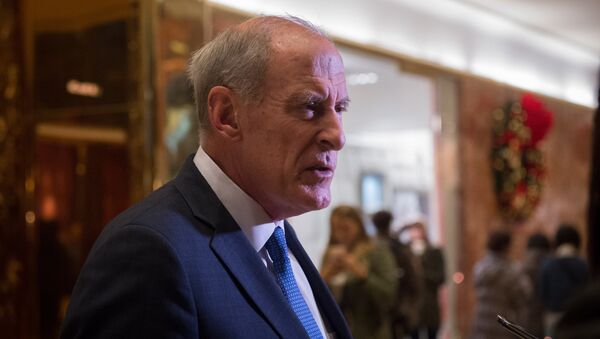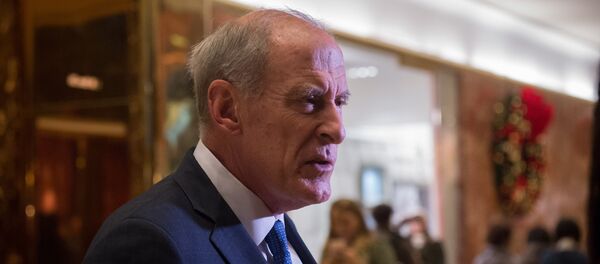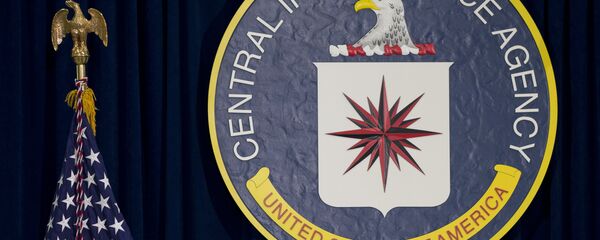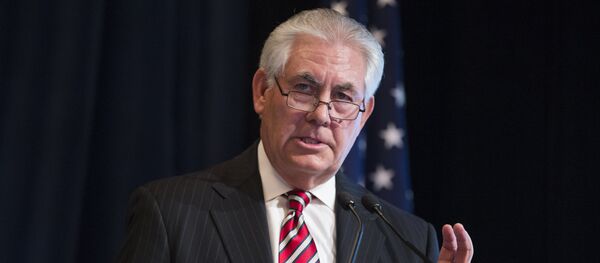In late-November, Politico reported that Coats was considered as the most likely candidate to replace Clapper in the office during Donald Trump’s presidency. According to the report, Coats met Trump at Trump Tower in New York and gave the new US president some of his "years of experience."
Coats, 73, spent a total of 15 years, serving as a US senator. During the presidency of George W. Bush, he served as US Ambassador to Germany.
A former senator from Indiana, Coats is believed to have arisen from the team of Dan Quayle, US Vice President during the term of President George H. W. Bush. Dan Coats has links to the elite of the Republican party and the Fellowship, a conservative and Christian lobby group in Congress.
Reuters described Coats as a "traditional conservative." In particular, while serving as senator, he was an avid opponent of gay marriage and openly gay service members within the US military.
At the same time, unlike many of his part fellows, Coats called to restrict arms sales in the US and even supported several related initiatives by Democrat President Bill Clinton.
Political analyst and specialist in US politics, Viktor Olevich pointed out that Coats represented Indiana in Senate while new US Vice President Michael Pence is currently serving as the Governor of Indiana.
According to Olevich, both Coats and Pence are member of the conservative establishment.
"Dan Coats is a persona non grata in Russia. He supported anti-Russian sanctions in 2014. He also said he was not an enthusiast of Russia," the expert told the Russian online newspaper Vzglyad.
Olevich suggested that Coats’ nomination for Director if National Intelligence signals that like his predecessors Trump is likely to have a hardline strategy towards Washington’s geopolitical rivals.
"If Trump’s policy [aimed at cooperation with Russia] fails and Russia rejects to make considerable concessions to the US, Washington may resort to a more hardline approach. Soon we’ll see how the new US presidential administration will respond to Moscow’ unwillingness to act against its national interests," the analyst said.
"At the time, the US launched the invasion of Iraq. The American aggression was opposed by Moscow, Berlin and Paris. Coats put much effort to neutralize that opposition," the expert said.
Despite the fact that Coats failed to convince the German government to support the US policy in the Middle East, he gained a reputation as a tough and resolved promoter of US interests abroad.
A source in the Democratic Party told Reuters that Dan Coats knows a lot about Russia and Europe and "might butt heads with Trump over Russia."
However, this remark can also be considered as an attempt by the Democrats to make it look like there are serious differences within Trump’s team.
In contrast, Senate Intelligence Chairman Richard Burr, a North Carolina Republican, told reporters that Coats "would be an excellent choice."
Moreover, some of US high-profile intelligence officials also welcomed Coats’ nomination for the post. According to Reuters, they hoped that this appointment was a sign that Trump was seeking to ease tensions with the intelligence community after "months of enmity."






